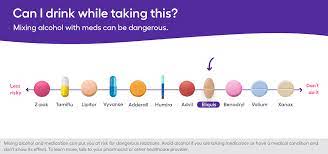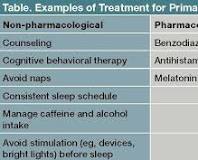Eliquis and Alcohol: What You Need to Know
When it comes to taking medication, it’s crucial to be aware of any potential interactions or side effects. One such medication that requires careful consideration is Eliquis, a commonly prescribed blood thinner. If you are taking Eliquis or considering it, it’s important to understand the potential risks associated with consuming alcohol while on this medication.
Eliquis, also known by its generic name apixaban, is primarily used to reduce the risk of blood clots and strokes in individuals with certain medical conditions, such as atrial fibrillation (a heart rhythm disorder) or deep vein thrombosis (DVT). It works by inhibiting the clotting factors in the blood, thus reducing the likelihood of dangerous clot formation.
Alcohol, on the other hand, is a substance that can have various effects on our bodies. While moderate alcohol consumption may not pose significant risks for most people, combining alcohol with certain medications can potentially lead to adverse reactions. When it comes to Eliquis and alcohol, there are a few important considerations:
- Increased bleeding risk: Both Eliquis and alcohol can thin the blood and increase the risk of bleeding. Combining these substances may heighten this risk even further. Excessive alcohol consumption can impair your body’s ability to form clots properly if you experience an injury or undergo surgery.
- Gastrointestinal issues: Alcohol can irritate the lining of your stomach and intestines. This irritation may increase your susceptibility to gastrointestinal bleeding when combined with Eliquis.
- Impaired judgment and coordination: Alcohol is known to impair judgment and coordination. When taking Eliquis, which also affects blood clotting mechanisms, impaired judgment could lead to an increased risk of accidents or injuries.
Considering these potential risks, it’s generally recommended that individuals taking Eliquis should limit their alcohol intake or avoid it altogether. However, it’s essential to consult with your healthcare provider for personalized advice. They can evaluate your specific medical history, overall health, and any other medications you may be taking to provide you with the most accurate guidance.
If you do choose to consume alcohol while on Eliquis, it’s important to do so in moderation. Moderate alcohol consumption is generally defined as up to one drink per day for women and up to two drinks per day for men. However, it’s crucial to note that these guidelines may vary depending on individual circumstances and health conditions.
In conclusion, when taking Eliquis, it is advisable to exercise caution when consuming alcohol. Understanding the potential risks and consulting with your healthcare provider can help ensure your safety and well-being while on this medication. Remember, always prioritize open communication with your healthcare team to make informed decisions regarding your health.
9 Tips for Taking Eliquis and Alcohol: What You Need to Know
- Do not drink alcohol while taking Eliquis.
- Talk to your doctor if you are considering drinking alcohol while taking Eliquis.
- Avoid drinking large amounts of alcohol, as it can increase the risk of bleeding.
- If you do decide to drink alcohol, limit yourself to no more than two drinks per day for men and one drink per day for women.
- Monitor any changes in your mood or behavior that may be related to the combination of Eliquis and alcohol consumption.
- Avoid driving or operating heavy machinery after consuming alcohol and Eliquis together, as this could put you at risk for an accident due to dizziness or drowsiness caused by the combination of drugs and alcohol in your system.
- Be aware that certain foods such as grapefruit can interact with Eliquis, so check with your doctor before consuming them when taking this medication as well as drinking any amount of alcoholic beverages at the same time .
- Make sure to keep all follow-up appointments with your doctor so that he/she can monitor any potential side effects from combining Eliquis and Alcohol use .
- Seek medical attention immediately if you experience any signs of bleeding such as unusual bruising , nosebleeds , coughing up blood , vomiting blood , or bloody stools which could indicate a serious side effect from combining these two substances
Do not drink alcohol while taking Eliquis.
If you are prescribed Eliquis, it is important to follow the instructions provided by your healthcare provider. One critical tip to keep in mind is to avoid drinking alcohol while taking this medication.
Eliquis, also known as apixaban, is a blood thinner commonly prescribed to reduce the risk of blood clots and strokes. Alcohol, on the other hand, can have various effects on our bodies and may interact negatively with certain medications.
Combining Eliquis with alcohol can potentially increase the risk of bleeding. Both substances thin the blood, and excessive alcohol consumption can impair your body’s ability to form clots properly. This means that even minor injuries or surgeries could result in more severe bleeding complications.
Additionally, alcohol can irritate the lining of your stomach and intestines. This irritation may heighten your susceptibility to gastrointestinal bleeding when combined with Eliquis.
To ensure your safety and the effectiveness of your treatment, it is strongly advised not to drink alcohol while taking Eliquis. It’s always best to consult with your healthcare provider regarding any concerns or questions you may have about medication interactions or lifestyle choices.
Remember, prioritizing your health and following medical advice will help you achieve optimal results from your treatment plan.
Talk to your doctor if you are considering drinking alcohol while taking Eliquis.
Talk to Your Doctor if You’re Considering Drinking Alcohol While Taking Eliquis
If you are currently taking Eliquis, a blood thinner medication, and are contemplating consuming alcohol, it’s crucial to have an open and honest conversation with your doctor. Your healthcare provider is the best person to guide you on whether it is safe for you to drink alcohol while on Eliquis.
Eliquis is prescribed to reduce the risk of blood clots and strokes in individuals with specific medical conditions. Alcohol, on the other hand, can potentially interact with medications and pose risks to your health. That’s why it’s essential to seek professional advice before making any decisions.
By discussing your alcohol consumption plans with your doctor, you can gain insights into potential interactions between Eliquis and alcohol based on your unique medical history. They will consider factors such as your overall health, dosage of medication, and any other medications you may be taking.
Your doctor will be able to assess the potential risks associated with combining Eliquis and alcohol in your particular situation. They may recommend abstaining from alcohol entirely or provide guidelines for safe consumption if they determine it is appropriate for you.
Remember that everyone’s circumstances are different, so what may be safe for one person may not be suitable for another. Trusting your doctor’s expertise ensures that you make informed decisions about your health and minimize any potential risks.
In conclusion, when it comes to drinking alcohol while taking Eliquis, always consult with your doctor first. Their professional guidance will help ensure that you prioritize safety and maintain optimal health while on this medication. Open communication with your healthcare provider is key in making well-informed choices regarding alcohol consumption while on Eliquis.
Avoid drinking large amounts of alcohol, as it can increase the risk of bleeding.
Avoiding Large Amounts of Alcohol While Taking Eliquis: Minimizing the Risk of Bleeding
If you are prescribed Eliquis, a blood thinner medication, it’s important to be mindful of your alcohol consumption. One crucial tip to keep in mind is to avoid drinking large amounts of alcohol, as it can increase the risk of bleeding.
Eliquis is prescribed to individuals with certain medical conditions that require blood thinning properties. While Eliquis is effective in reducing the risk of blood clots and strokes, combining it with excessive alcohol intake can potentially heighten the chances of bleeding complications.
Alcohol itself has blood-thinning effects, and when combined with Eliquis, it can further thin the blood and impair its clotting ability. This can be particularly problematic if you experience an injury or undergo surgery while on this medication. Excessive alcohol consumption can hinder your body’s ability to form clots properly, leading to a higher risk of bleeding and potentially complicating your recovery.
To minimize these risks, it is recommended to avoid consuming large amounts of alcohol while taking Eliquis. The precise definition of “large amounts” may vary depending on individual circumstances and medical history. It’s always best to consult with your healthcare provider for personalized advice tailored to your specific needs.
Remember that moderation is key when it comes to alcohol consumption while on Eliquis or any other medication. If you choose to enjoy an occasional drink, do so in moderation and be aware of any potential side effects or interactions. Prioritizing open communication with your healthcare provider will help ensure that you make informed decisions regarding your health and well-being.
In conclusion, if you are taking Eliquis, avoiding large amounts of alcohol is an important tip to reduce the risk of bleeding complications. Always follow the guidance provided by your healthcare provider and maintain open communication throughout your treatment journey. By being mindful of your alcohol consumption, you can help ensure a safer and more effective experience with Eliquis.
If you do decide to drink alcohol, limit yourself to no more than two drinks per day for men and one drink per day for women.
The Importance of Moderation: Eliquis and Alcohol
When it comes to taking medication like Eliquis, responsible alcohol consumption is essential. If you choose to drink alcohol while on Eliquis, it’s crucial to understand the recommended limits to ensure your safety and well-being.
According to medical guidelines, men should limit themselves to no more than two drinks per day, while women should stick to one drink per day. These limits are in place for several reasons:
- Minimizing potential risks: Alcohol can interact with medications, including Eliquis, and increase the risk of adverse effects. By limiting your alcohol intake, you reduce the chances of experiencing complications or unwanted side effects.
- Maintaining effectiveness: Eliquis is prescribed to help prevent blood clots and strokes. Excessive alcohol consumption can impair its effectiveness by thinning the blood even further. Sticking to moderate drinking ensures that Eliquis can work as intended.
- Overall health considerations: Drinking in moderation is generally advised for maintaining good health. Excessive alcohol consumption can lead to a range of health issues, including liver damage, heart problems, and increased risk of accidents or injuries.
Remember that these guidelines are not only specific to individuals taking Eliquis but also serve as general recommendations for responsible alcohol consumption. It’s always important to consult with your healthcare provider for personalized advice based on your unique circumstances.
By being mindful of your alcohol intake and adhering to these limits, you can enjoy a balanced lifestyle while minimizing potential risks associated with combining Eliquis and alcohol. Prioritizing open communication with your healthcare team will ensure that you make informed decisions regarding your health and medication management.
In conclusion, if you decide to drink alcohol while on Eliquis, remember the importance of moderation. Limit yourself to no more than two drinks per day if you’re a man or one drink per day if you’re a woman. By doing so, you prioritize both your overall well-being and the effectiveness of your medication.
Monitor any changes in your mood or behavior that may be related to the combination of Eliquis and alcohol consumption.
Monitoring Mood and Behavior: The Combination of Eliquis and Alcohol
When it comes to taking any medication, it’s important to be vigilant about any changes in your mood or behavior. This is especially true when considering the combination of Eliquis, a blood thinner, and alcohol consumption. Monitoring yourself for any potential shifts in mood or behavior can help ensure your well-being while on this medication.
Eliquis, also known as apixaban, is often prescribed to reduce the risk of blood clots and strokes in individuals with certain medical conditions. Alcohol, on the other hand, is a substance that can have various effects on our mental and emotional state. Combining these two substances may potentially impact mood and behavior in some individuals.
While there isn’t a direct interaction between Eliquis and alcohol that affects mood or behavior for everyone, it’s important to be aware of potential changes that may occur. Some individuals may experience heightened emotions or alterations in their usual behavior when consuming alcohol while on Eliquis.
If you are taking Eliquis and choose to consume alcohol, it’s crucial to monitor yourself closely for any noticeable shifts in your mood or behavior. These changes may include increased irritability, depression, anxiety, or even unusual levels of aggression. If you notice any significant alterations in how you feel or act after consuming alcohol while on Eliquis, it is essential to discuss these observations with your healthcare provider promptly.
Remember that everyone’s response to medications and alcohol can vary greatly. What affects one person may not affect another in the same way. By paying attention to any changes in your mood or behavior and promptly reporting them to your healthcare provider, you can work together to determine the best course of action for your specific situation.
Ultimately, being proactive about monitoring yourself for any shifts in mood or behavior related to the combination of Eliquis and alcohol is an important step towards ensuring your overall well-being. Open communication with your healthcare provider will help guide you in making informed decisions about your health and medication management.
Avoid driving or operating heavy machinery after consuming alcohol and Eliquis together, as this could put you at risk for an accident due to dizziness or drowsiness caused by the combination of drugs and alcohol in your system.
The Importance of Avoiding Driving or Operating Heavy Machinery When Combining Eliquis and Alcohol
When it comes to the combination of Eliquis (apixaban) and alcohol, it’s crucial to prioritize safety and be aware of potential risks. One important tip to remember is to avoid driving or operating heavy machinery after consuming alcohol and taking Eliquis simultaneously. This precaution is necessary because the combination of these substances can lead to dizziness or drowsiness, which may impair your ability to operate vehicles or machinery safely.
Alcohol is known to have sedative effects on the central nervous system, causing drowsiness and impairing coordination. When combined with Eliquis, which also affects blood clotting mechanisms, these effects can be intensified. Dizziness and drowsiness can compromise your judgment, reaction time, and overall cognitive function, putting you at a higher risk for accidents.
Driving a vehicle or operating heavy machinery requires alertness, focus, and quick reflexes. Consuming alcohol while on Eliquis can increase the likelihood of experiencing side effects that interfere with these essential skills. It’s important to remember that impaired judgment or delayed reactions could have severe consequences not only for yourself but also for others sharing the road or working in close proximity.
To ensure your safety and the safety of those around you, it is strongly advised to refrain from driving or operating heavy machinery if you have consumed alcohol while taking Eliquis. If you plan on drinking alcohol, it’s best to arrange alternative transportation options such as a designated driver, public transportation, or rideshare services.
Always consult with your healthcare provider regarding any concerns or questions about combining Eliquis with alcohol. They are in the best position to provide personalized advice based on your specific medical history and current health condition.
Remember, prioritizing safety should always be the top priority when it comes to medication use and alcohol consumption. By avoiding driving or operating heavy machinery after consuming alcohol while on Eliquis, you can reduce the risk of accidents and ensure the well-being of yourself and those around you.
Be aware that certain foods such as grapefruit can interact with Eliquis, so check with your doctor before consuming them when taking this medication as well as drinking any amount of alcoholic beverages at the same time .
Interactions Between Eliquis, Grapefruit, and Alcohol: What You Should Know
When it comes to taking medication, it’s important to be aware of potential interactions with certain foods and substances. If you are prescribed Eliquis, a commonly used blood thinner, it’s essential to understand that certain foods, such as grapefruit, can interact with this medication. Additionally, it is crucial to consult your doctor before consuming alcohol while on Eliquis.
Grapefruit and its juice contain compounds that can interfere with the enzymes responsible for metabolizing medications in our bodies. This interaction can lead to higher levels of the medication in the bloodstream than intended. When it comes to Eliquis, consuming grapefruit or its juice may increase the risk of bleeding or other side effects associated with this blood-thinning medication. Therefore, it is advisable to check with your doctor before including grapefruit in your diet while taking Eliquis.
In addition to grapefruit, combining alcohol with Eliquis can also have potential risks. Both alcohol and Eliquis can thin the blood and increase the risk of bleeding. Combining these substances may further heighten this risk. Excessive alcohol consumption can impair your body’s ability to form clots properly if you experience an injury or undergo surgery. Therefore, it is important to consult your healthcare provider regarding the consumption of alcoholic beverages while on Eliquis.
To ensure your safety and well-being while on Eliquis, remember these key points:
- Be aware that grapefruit and its juice may interact with Eliquis. Consult your doctor before consuming grapefruit or its products while taking this medication.
- Understand that alcohol consumption while on Eliquis can increase the risk of bleeding and other complications associated with blood thinners. Always seek guidance from your healthcare provider before consuming alcoholic beverages.
- Openly communicate with your healthcare team about any dietary concerns or questions you may have regarding interactions between food or substances and your medications.
By staying informed and maintaining open communication with your doctor, you can make well-informed decisions about your diet and lifestyle while on Eliquis. Prioritizing your health and following medical advice will help ensure the safe and effective use of this medication.
Make sure to keep all follow-up appointments with your doctor so that he/she can monitor any potential side effects from combining Eliquis and Alcohol use .
The Importance of Follow-Up Appointments: Monitoring the Effects of Eliquis and Alcohol
If you are taking Eliquis and considering consuming alcohol, it’s crucial to prioritize your health and safety. One essential step in doing so is making sure to keep all follow-up appointments with your doctor. These appointments allow your healthcare provider to closely monitor any potential side effects or interactions that may arise from combining Eliquis and alcohol use.
Eliquis, a blood thinner medication, is prescribed to individuals at risk of blood clots or strokes. Alcohol, on the other hand, can have various effects on our bodies. When these two substances are combined, there is an increased risk of bleeding and other complications.
By attending regular follow-up appointments with your doctor, you provide them with the opportunity to assess your overall health, evaluate the effectiveness of your treatment plan, and monitor any potential side effects. This is particularly important when considering the addition of alcohol into the equation.
During these appointments, your doctor will inquire about your alcohol consumption habits and assess whether they may pose any risks while taking Eliquis. They will also conduct necessary tests to monitor various parameters such as blood clotting factors and liver function.
By actively participating in these follow-up appointments, you can ensure that any adverse effects or interactions between Eliquis and alcohol are promptly identified and addressed. Your doctor may provide personalized advice on how to manage potential risks or may advise against consuming alcohol altogether while on this medication.
Remember that open communication with your healthcare provider is key. Be honest about your alcohol consumption habits so that they can provide accurate guidance tailored to your specific situation. If you have any concerns or questions between appointments, do not hesitate to reach out to your healthcare team for clarification.
In conclusion, keeping all follow-up appointments with your doctor is vital when taking Eliquis and considering consuming alcohol. By doing so, you enable them to closely monitor any potential side effects or interactions that may arise from combining these substances. Prioritizing your health and maintaining open communication with your healthcare provider will help ensure that you are on the right track towards optimal well-being.
Seek medical attention immediately if you experience any signs of bleeding such as unusual bruising , nosebleeds , coughing up blood , vomiting blood , or bloody stools which could indicate a serious side effect from combining these two substances
Important Tip: Eliquis and Alcohol – Recognizing Signs of Bleeding
If you are taking Eliquis, a blood thinner, it’s crucial to be aware of potential signs of bleeding, especially when combined with alcohol. While it is generally recommended to limit or avoid alcohol while on Eliquis, if you do consume alcohol and experience any unusual symptoms, seek immediate medical attention.
Bleeding can be a serious side effect when combining Eliquis with alcohol. It’s essential to pay attention to your body and watch for any signs that may indicate bleeding complications. Here are some key symptoms to be aware of:
- Unusual Bruising: If you notice unexplained bruises appearing on your body without any known cause or injury, it could be a sign of abnormal bleeding.
- Nosebleeds: Frequent or severe nosebleeds that are difficult to stop could indicate an increased risk of bleeding while taking Eliquis and consuming alcohol.
- Coughing up Blood: If you cough up blood or notice blood in your saliva, it is crucial to seek immediate medical attention as this may suggest internal bleeding.
- Vomiting Blood: Vomiting blood or noticing blood in your vomit can be a severe indication of gastrointestinal bleeding. It requires prompt medical evaluation.
- Bloody Stools: The presence of blood in your stools (either bright red or black and tarry) should never be ignored. It could signify gastrointestinal bleeding and requires urgent medical attention.
If you experience any of these symptoms while taking Eliquis and consuming alcohol, do not hesitate to seek immediate medical assistance. Prompt intervention can help identify the cause and prevent further complications.
Remember, this tip is not meant to discourage responsible drinking but rather to emphasize the importance of being vigilant about potential risks associated with combining Eliquis and alcohol. Always consult with your healthcare provider for personalized advice regarding your specific situation.
Your health and well-being should always take priority, and seeking medical attention when necessary is crucial to ensure your safety while on medication.




